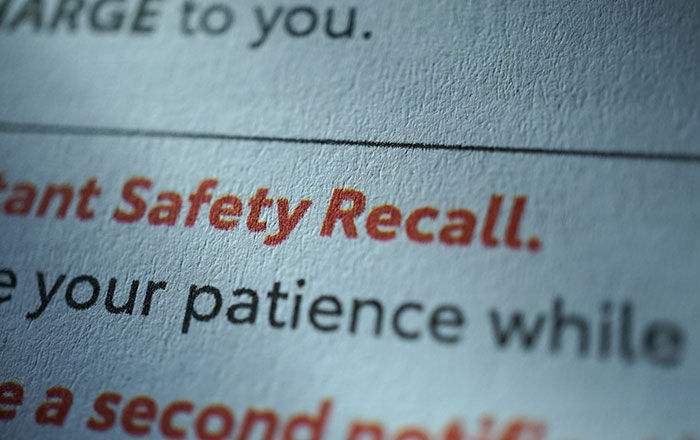Workers’ compensation is a vital system designed to protect both employers and employees when workplace accidents occur. In South Carolina, like in many other states, the Workers’ Compensation Act is in place to provide benefits and financial support to employees who sustain injuries or illnesses while on the job. This comprehensive guide aims to shed light on the intricacies of South Carolina’s workers’ compensation benefits, helping both employees and employers navigate the system effectively.
What Is Workers’ Compensation?
Workers’ compensation, often referred to as “workers’ comp,” is a system established to provide medical care and financial assistance to employees who suffer work-related injuries or illnesses. It ensures that employees receive the necessary medical treatment and wage replacement when they cannot work due to their injury.
The South Carolina Workers’ Compensation Act mandates that nearly all employers provide workers’ compensation insurance coverage for their employees. This coverage includes injuries sustained while performing job-related duties, even if the accident was partially the employee’s fault. Workers’ compensation benefits are not limited to just physical injuries; they can also cover occupational diseases and illnesses related to employment.
Coverage Under South Carolina Workers’ Compensation
The South Carolina Workers’ Compensation Act covers a wide range of workers, including:
- Full-time employees
- Part-time employees
- Seasonal workers
- Temporary workers
The act generally excludes domestic workers, federal employees, railroad employees (covered by federal laws), and casual employees. It’s essential for both employers and employees to understand who is eligible for workers’ compensation benefits under South Carolina law.
Reporting a Workplace Injury
Timeliness is crucial when it comes to reporting workplace injuries in South Carolina. Employees should inform their employer about the injury or illness as soon as possible. Failing to report the incident promptly may affect the employee’s ability to claim benefits.
Employers, on the other hand, must report the injury or illness to their workers’ compensation insurance provider and the South Carolina Workers’ Compensation Commission (SCWCC) within ten days of being notified. The SCWCC is the regulatory authority responsible for overseeing workers’ compensation claims in the state.
Types of Workers’ Compensation Benefits
South Carolina workers’ compensation benefits can be divided into four main categories:
- Medical Benefits: These benefits cover the costs of medical treatment, rehabilitation, and prescription medications required to treat the work-related injury or illness. This includes doctor’s visits, hospitalization, physical therapy, and any necessary medical equipment.
- Temporary Total Disability (TTD) Benefits: When an injured employee cannot work due to their injury or illness, they may be eligible for TTD benefits. These benefits provide financial support that replaces a portion of the injured worker’s lost wages.
- Temporary Partial Disability (TPD) Benefits: TPD benefits are for employees who can return to work but are earning less than they were before the injury. These benefits bridge the gap by providing compensation for the wage difference.
- Permanent Disability Benefits: When an employee’s injury or illness results in a permanent impairment, they may be entitled to permanent disability benefits. The level of impairment and the specific body part affected determine the amount of compensation an employee receives.
Calculating Benefit Amounts
The amount of workers’ compensation benefits in South Carolina is determined by various factors, including the severity of the injury, the employee’s average weekly wage, and whether the disability is temporary or permanent. Benefit calculations can be complex, but generally follow these guidelines:
- Temporary Total Disability (TTD) Benefits: These benefits typically amount to two-thirds (66.67%) of the employee’s average weekly wage, subject to a maximum and minimum limit established by the state.
- Temporary Partial Disability (TPD) Benefits: TPD benefits usually amount to two-thirds of the difference between the employee’s average weekly wage before and after the injury, subject to maximum and minimum limits.
- Permanent Disability Benefits: The amount of permanent disability benefits is determined based on the percentage of permanent impairment, the injured body part, and the employee’s average weekly wage. South Carolina has a statutory schedule that outlines compensation for specific injuries, such as the loss of a finger, hand, foot, or other body parts.
Legal Assistance and Dispute Resolution
In some cases, disputes may arise regarding workers’ compensation benefits. Employers or their insurance providers may contest a claim, and employees may find it challenging to secure the benefits they deserve. In such situations, legal assistance can be invaluable.
Employees have the right to consult an attorney who specializes in workers’ compensation cases. Legal representation can help ensure that the injured worker’s rights are protected and that they receive the maximum benefits to which they are entitled. Attorneys can also assist in resolving disputes and navigating the appeals process if a claim is denied.
Returning to Work
One of the primary goals of workers’ compensation is to facilitate an employee’s return to work as soon as they are medically able. South Carolina employers are required to provide suitable job opportunities for injured workers once they have recovered to the extent that they can return to work.
The employer is encouraged to work with the employee to find suitable accommodations and to ensure a smooth transition back to the workplace. If an employee is unable to return to their previous job due to their injury, the employer may need to provide alternative work that accommodates the employee’s physical limitations.
Third-Party Claims
While workers’ compensation provides essential benefits, it’s worth noting that employees may have the right to pursue a third-party claim if a party other than their employer or co-worker was responsible for their work-related injury. For example, if the injury was caused by a defective product or the negligence of a subcontractor, the injured employee can seek compensation through a separate personal injury claim against the third party.
This option can provide additional compensation beyond what is available through workers’ compensation benefits and is an important avenue to consider when the circumstances warrant it.
Deadlines and Time Limits
It’s important to understand that there are specific deadlines and time limits associated with workers’ compensation claims in South Carolina. Failing to meet these deadlines can jeopardize an injured worker’s ability to receive benefits.
- Key timeframes include:
- Reporting the injury to the employer as soon as possible
- Filing a workers’ compensation claim with the SCWCC within two years of the injury or illness diagnosis
- Appealing a denied claim.
Frequently Asked Questions
To provide further clarity on South Carolina workers’ compensation benefits, let’s address some common questions:
- Is Workers’ Compensation a No-Fault System?
Yes, workers’ compensation is a no-fault system, meaning that employees can generally receive benefits regardless of who was at fault for the injury or illness.
- Can I Choose My Own Doctor for Medical Treatment?
In South Carolina, employers have the right to designate the initial treating physician.
- Can I Be Fired for Filing a Workers’ Compensation Claim?
It is illegal for employers to retaliate against employees for filing workers’ compensation claims. Employees are protected by anti-retaliation laws.
- Can I Receive Both Workers’ Compensation Benefits and Social Security Disability?
Yes, it is possible to receive both workers’ compensation benefits and Social Security Disability benefits. However, the combined benefits cannot exceed a certain percentage of the employee’s average earnings.
Conclusion
Understanding South Carolina workers’ compensation benefits is vital for both employers and employees. In this comprehensive guide, we have explored the basics of workers’ compensation, who is covered, how to report workplace injuries, the types of benefits available, calculating benefit amounts, resolving disputes, returning to work, and more. By knowing their rights and responsibilities under the South Carolina Workers’ Compensation Act, both employers and employees can ensure a smoother and more efficient process in the event of a workplace injury or illness. Remember, consulting with an attorney who specializes in workers’ compensation cases can provide invaluable guidance and support throughout the claims process, ensuring that injured workers receive the benefits to which they are entitled.
Contact McWhirter, Bellinger & Associates Today To Talk To Our Workers’ Compensation Attorneys
If you’ve been injured at a South Carolina workplace, navigating the workers’ compensation system may seem daunting. Many people find that hiring an experienced personal injury attorney is well worth it, as a lawyer can guide you through the legal process, make sure all necessary paperwork is filed correctly and on time, and negotiate on your behalf.
The South Carolina workers’ compensation lawyers at McWhirter, Bellinger & Associates have been representing injured employees for more than 40 years, fighting hard for each and every client to receive what they’re rightfully owed following their workplace accident.
We are proud to offer free case evaluations to injured employees in South Carolina, so give us a call today at 888-353-5513. It won’t cost you anything to see if we can help.®

















